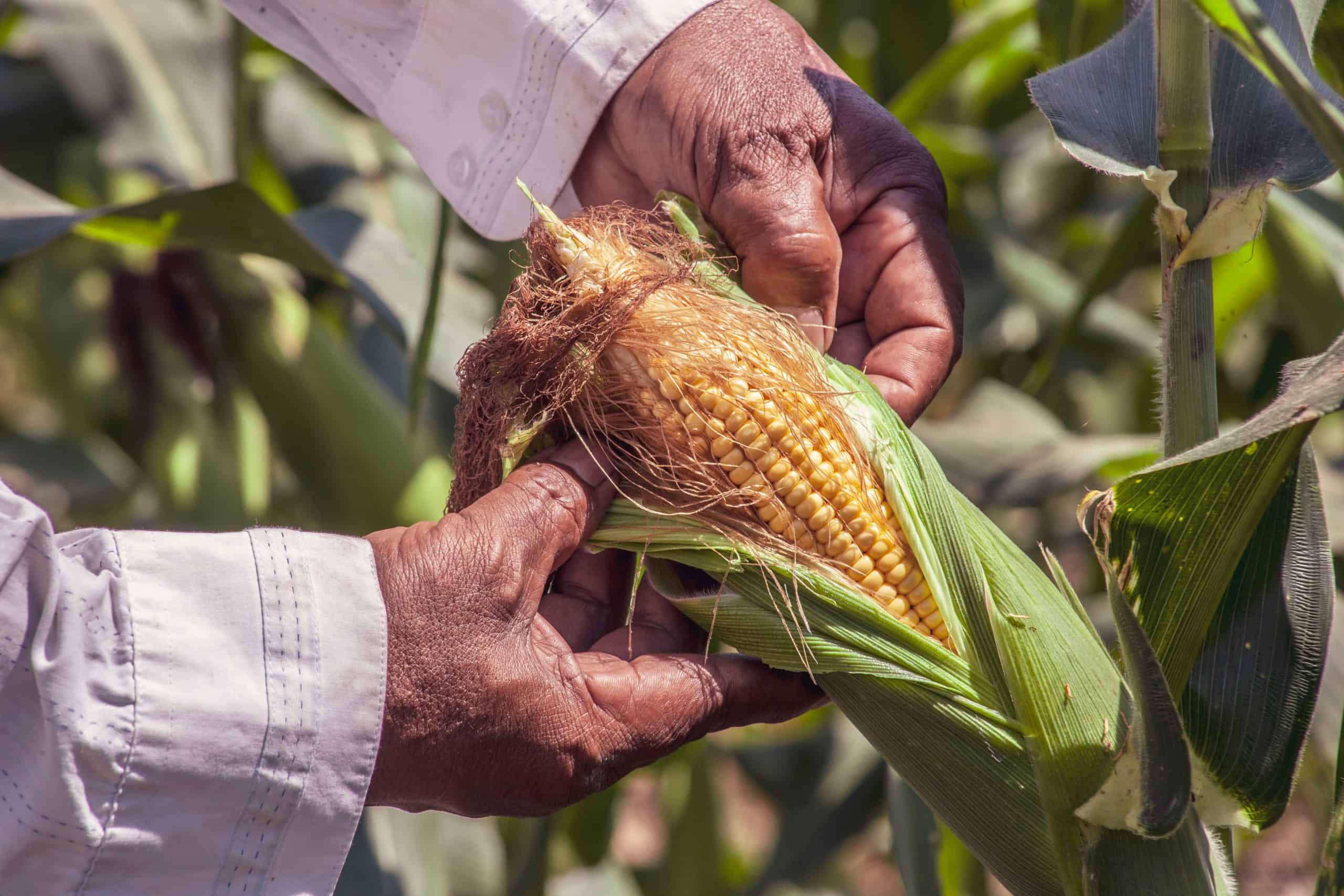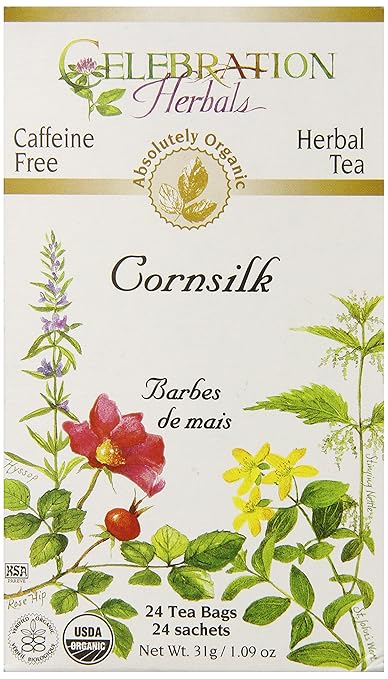As a child, I loved pulling the long silky strands from the neighbor’s corn. Little did I know those silky stringy stands could be used in a medicinal way. Another fact I did not know is that each strand connects to a kernel of corn as a way to pollinate the seed. My grandmother knew and she was not very happy with me. My grandmother used corn silk often as tea. The health benefits are outstanding. The taste is mild and slightly sweet with no caffeine.

Things to know before buying corn silk tea
The earth is amazing. The fact that benefits she gives are so wide-ranging. Even the silk of a corn plant is beneficial is incredible. While cornsilk works to pollinate an ear of corn it has a multi-use of healing for our bodies.
Traditionally used by Native Americans and the Chinese to treat many diseases. It is also used to treat diseases in Turkey, France, and the United States. For years the health benefits of corn silk have been used to treat depression, and fatigue and act as a diuretic.
Corn silk has many health benefits from bladder, heart, and kidney issues. The health benefits also aid in fatigue and weight loss. What a beneficial by-product of corn. Corn silk contains the flavonoid maysin which is specific to corn. Maysin, along with the other properties of corn silk provides an answer.
The main reason anyone goes seeking corn silk tea is because of its diuretic properties. If you have water retention. If you have kidney or bladder issues then corn silk tea would be first recommended. The other benefits to corn silk are just proving how amazing a by-product can be.
Consider only non-GMO corn silk. The fewer toxins the better in tea. In anything really. Make sure the herbs you buy come from a reputable source. If you decide to take advantage of your own fresh corn silk. You just need to make sure you know the source and if any pesticides were used.
Benefits of corn silk tea
Yes, the corn silk you would find at the top of your ear of corn. That is the same corn silk we are talking about. I don’t believe there are many plants that were not created with a medicinal purpose. Corn silk is and has been used in a medicinal way.
The actual pollination of corn silk is that of the stigmas of female flowers. The silk is pollinated and carry’s that pollination to a kernel. Each silk strand (if pollinated) makes one kernel. The corn silk is tubular, pollen lands, and is carried down the tube and pollinates a kernel.
While research is limited, corn silk is natural corn fiber. This fiber is used in traditional Chinese and Native American medicine. Most of the time corn silk is used dried but can also be used fresh.
Pros:
- Diuretic – Drinking corn silk tea can act as a naturally potent diuretic agent, which helps to flush out excess water and waste from the body
- Kidney stones – Corn silk tea is helpful in treating conditions associated with the kidney such as inflammation of the urinary system, kidney stones, bladder infection, and prostate problems.
- Antioxidants – recent studies have shown the value of corn silk and antioxidants
- High Blood Pressure – A clinical study conducted on 40 individuals showed positive results in terms of lowering blood pressure.
- Heart Disease – Corn silk contains stigmasterol and sitosterol, which are highly effective in preventing heart disease and high cholesterol
- Vitamin C – Corn silk contains antioxidants that fight off free radicals
- Gout – reduces the pain and aches caused by gout
Corn silk contains proteins, carbohydrates, vitamins, minerals, and fiber
Cons:
- Can decrease potassium levels in the blood. If your levels are already low this can cause a real problem.
- Can cause an irregular heartbeat do not use while fasting and make sure to eat a healthy diet including potassium.
- Can cause problems for people who already have low sugar levels
- It may cause rashes, itching, and allergic reactions if used topically.
- May also cause allergic reactions if drinking tea.
- High or low levels of blood pressure can be adversely affected by taking large amounts of corn silk.
Features and benefits of corn silk tea
While oksusu-suyeom-cha or corn silk tea refers to the tea made from corn silk. Oksusu-cha can be made from corn kernels, corn silk, or a combination of both. The caffeine-free infusion is a popular hot drink in winter.
Corn silk is considered a waste byproduct of corn. But the medicinal benefits and remedies of corn stalk are far greater than a waste product. Herbs are the oldest form of health care remedies known to man. The world has relied on herbs long before traditional medicine.
Some traditional medicines are derived from herbs.
Corn silk contains:
- Antioxidants
- Fiber
- Calcium
- Potassium
- Proteins
- Carbohydrates
- Vitamins
- Minerals
- Fiber
Corn silk has many health benefits:
Bladder Infections – Corn silk has a variety of healing properties for bladder infections. Corn silk contains tannins, terpenoids, alkaloids, and flavonoids. These act together to produce antimicrobial properties.
Prostate – A study with corn silk on prostates in rats provides insight into the healing properties of corn silk. Corn silk extract improves benign prostatic hyperplasia in this study.
Kidney stones – Anyone (including myself) who has had a kidney stone knows the immeasurable pain it can cause. Corn silk may help ease the pain of passing a kidney stone. Corn silk is also a diuretic causing more urine to flow and fewer toxins to be built up.
Bedwetting – I’m not sure how this works but people swear by the benefit. If your child is still bedwetting, give them a cup of corn silk tea before going to bed.
Diabetes – The effects of corn silk in mice were shown to increase insulin levels and help injured cells recover. Corn silk can be considered hypoglycemic food (or tea).
High blood pressure – because of its diuretic properties. Corn silk removes excess fluids and reduces inflammation and high blood pressure. Corn silk is also known to be a weight loss supplement, by reducing weight the blood pressure lowers.
Fatigue – In a study of swimming rats, rats fed corn silk performed 39.6% better. The rats swimming time increased by that amount.
High Cholesterol – In this study it was shown that by consuming corn silk, total cholesterol was lowered and good cholesterol increased.
Diuretic – Corn silk is a super diuretic agent. Corn silk can be misguided as a diet tea but this is only because of the water lost while consuming it.
Cons:
- Can decrease potassium
- Skin Rashes – allergic reactions
- Several medications interact with corn silk. Please check with your doctor if you are taking:
- Warfarin
- Water Pills
- Diabetic medication
- Medication for high blood pressure
- Medication for inflammation
How to make corn silk tea
Making corn silk tea is not difficult. All you need is:
- 1 cup of boiling water for every tablespoon of dried corn silk.
- Let it sit for 15-20 minutes
- Strain
When it is cold enough to drink, you can add 1 teaspoon of raw honey if you desire. This sweetens the tea for those who prefer it that way.
You can store the remaining tea in your refrigerator for 2 to 3 days.
The general recommendation for adults is 1 cup, two to three times a day.
**Experts recommend not drinking corn silk tea right before you go to sleep. The dose for children should be reduced.
**Before you use corn silk as a treatment for any condition, consult your health care provider. Make sure that corn silk does not interfere with any medication.
Social proof
I am not alone in my praise of corn silk tea. I searched the internet and found reviews that seemed rather positive on corn silk.
“I have had many UTIs. I have been drinking this tea for months with NO recurring UTIs! I highly recommend it!”
“I use this tea because I have interstitial cystitis. It seems to help. There are very few beverages I can’t drink because they are mostly high in acid or they have caffeine in them. This one I have no problem with drinking it.”
“This is a great medicinal tea. For a tea, I was happily surprised that it’s not bitter, in fact, almost a sweet and comforting beverage.”
Conclusion
Some surprising things to learn about corn silk tea. The pollinating fibers of an ear of corn and so beneficial. From centuries ago, to Indians unto present-day corn silk is beneficial in so many ways. Corn silk helps to lower blood pressure and heal UTIs. Most importantly this writer lessens kidney stones and their pain. When modern medicine fails us or is unattainable there are always herbs. Herbs and their healing properties help us heal.





2 thoughts on “Corn Silk Tea: The History, Benefits And How To Prepare”
Thank you for your research about this tea! My Dr. recommended it to me for kidney stones and swelling of my lower legs/ankles/feet. I am so thankful to learn from you the benefits of the tea with diabetes, high blood pressure and weight loss. Thank you, again! Going out to the Korean grocery store to purchase 3 boxes now!
Hello Kim!!!
Thank you for the kind words. I love to hear how I am helping. I have a box of corn silk tea in my tea closet as well. I do like to blend it with other herbs. Most of all, how GREAT it is you have a Dr. that recommends an herb and tea for your kidney. The world needs more Dr.s like that.